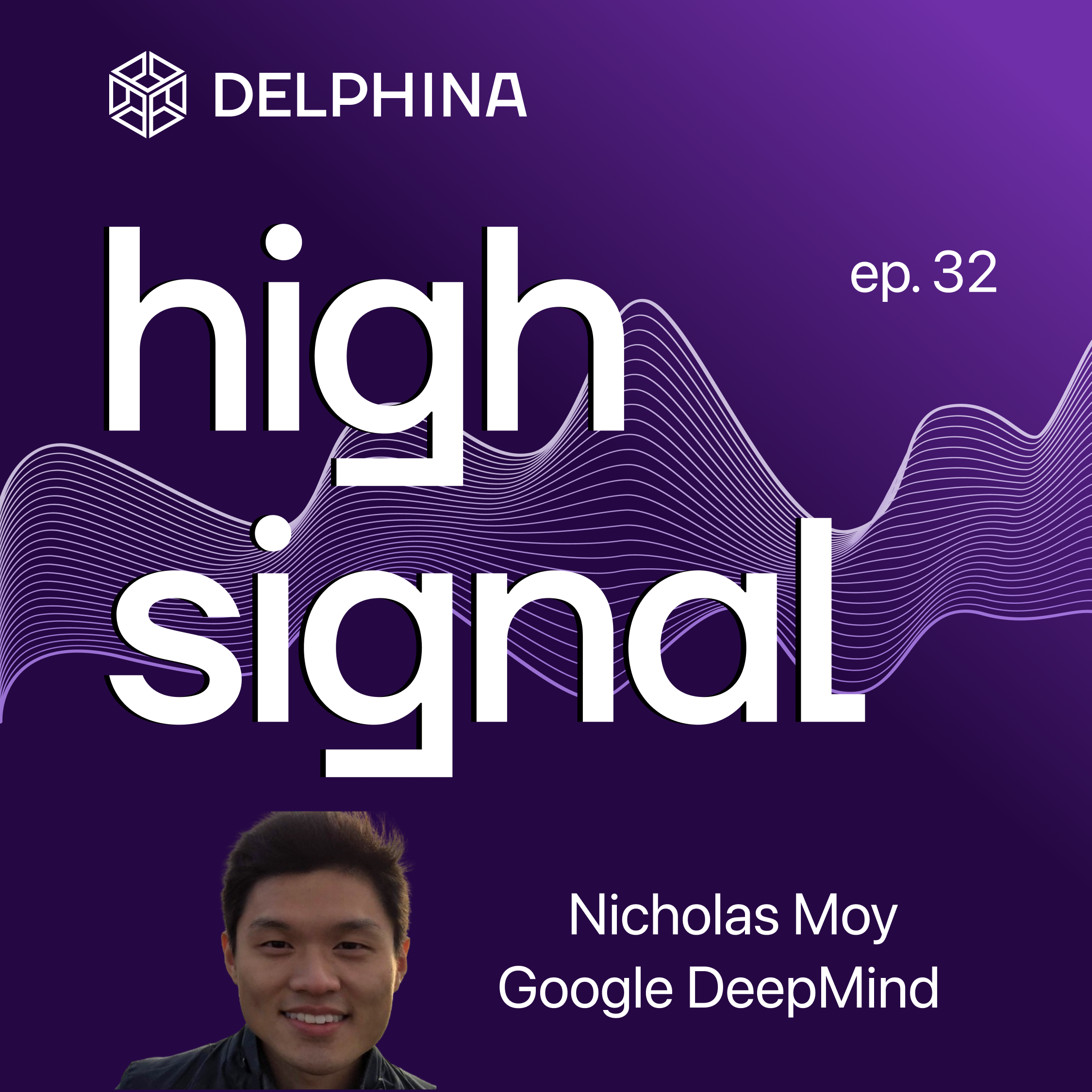Chiara Farronato on Data Science Meets Management: Teamwork, Experimentation, and Decision-Making

Harvard Business School
Chiara Farronato is Glenn and Mary Jane Creamer Associate Professor of Business Administration in the Technology and Operations Management Unit at Harvard Business School, and co-Principal Investigator of the Platform Lab at the Digital Data Design Institute (D^3) at Harvard.
Her research focuses on the growth of digital platforms, such as Amazon and Airbnb. Her work explores key decisions managers need to make when crafting growth strategies that attract new users and intensify use by existing platform participants. At Harvard Business School, she teaches Data Science for Managers in the required curriculum, for which she received the 2024 Apgar Award for Innovation in Teaching.




Delphina
Hugo Bowne-Anderson is an independent data and AI consultant with extensive experience in the tech industry. He is the host of the industry podcast Vanishing Gradients, where he explores cutting-edge developments in data science and artificial intelligence.
As a data scientist, educator, evangelist, content marketer, and strategist, Hugo has worked with leading companies in the field. His past roles include Head of Developer Relations at Outerbounds, a company committed to building infrastructure for machine learning applications, and positions at Coiled and DataCamp, where he focused on scaling data science and online education respectively.
Hugo's teaching experience spans from institutions like Yale University and Cold Spring Harbor Laboratory to conferences such as SciPy, PyCon, and ODSC. He has also worked with organizations like Data Carpentry to promote data literacy.
His impact on data science education is significant, having developed over 30 courses on the DataCamp platform that have reached more than 3 million learners worldwide. Hugo also created and hosted the popular weekly data industry podcast DataFramed for two years.
Committed to democratizing data skills and access to data science tools, Hugo advocates for open source software both for individuals and enterprises.
Key Quotes
Key Takeaways
1. Effective Communication Between Managers and Data Scientists
Bridging the gap between technical and non-technical roles is critical. Managers need to learn key technical concepts, while data scientists should communicate in a more intuitive way. This balance ensures smoother collaboration and more data-driven decision-making.
2. The Role of Education in Building Data Literacy for Managers
Managers aren't expected to become data scientists but must be able to ask the right questions and understand the answers. They should focus on learning concepts that help them work effectively with data scientists and engineers, rather than becoming technical experts themselves.
3. Leveraging Generative AI for Upskilling and Data Literacy
Tools like ChatGPT can help non-technical individuals gain technical skills, like learning SQL or understanding data analysis. This allows managers and others to get hands-on experience with data without needing a deep technical background, making it easier to bridge the gap between roles.
4. Case Study: Uber’s Pool Product and Experimentation
Uber’s use of rapid experimentation to refine their pool product offers a strong lesson in how data scientists, engineers, and managers can collaborate to make data-driven decisions. The case highlights the balance between operational efficiency and customer experience, showing how experiments can inform product design.
5. Cross-functional Teams and ‘Trip Parties’
At Uber, engineers, data scientists, and product managers worked together in “trip parties” to evaluate simulations of new product features. This tight collaboration led to better decision-making and product improvements by balancing technical, data-driven insights with business needs.
6. Data-Driven Decision Making: Listening to the Data, Not the Loudest Voice
One key takeaway from Uber’s approach was that decisions should be driven by what the data shows, not by the loudest person in the room. Data experimentation should guide choices, but it’s equally important to acknowledge where the data’s limits are and what it cannot answer.
7. Practical Steps for Business Leaders to Foster Data-Driven Culture
Business leaders should create a culture where data drives decision-making. This involves equipping all levels of an organization with the ability to access and analyze data, fostering collaboration between technical and non-technical teams, and building processes that allow ongoing experimentation and data analysis.
8. Personalization of Insurance and Other Services Through Data
In the Telepass case study, a traditional company transformed into a data-driven mobility platform, personalizing services like car insurance based on individual behavior. This example shows how data can unlock new business opportunities and improve product offerings in even the most traditional industries.
9. The Importance of Flexibility in Data Science Education for Managers
Data science and AI education are increasingly becoming critical for business leaders. As technology evolves rapidly, managers must be flexible and open to continuous learning, ensuring that they can adapt to and leverage new tools and methods effectively throughout their careers.
10. Teamwork and Shared Goals Drive Success
The most important takeaway is the importance of cross-functional teamwork. Whether working in technical or managerial roles, aligning around shared goals and objectives is key to successful outcomes in any data science project.
Timestamps:
00:00 Welcome and Introduction
00:32 Exploring Digital Platforms
01:17 Communication Gaps in Data Science
01:51 Case Study: Uber's Trip Parties
02:55 Statistical vs. Intuitive Communication
05:16 Meet the Delphina Team
06:06 The Importance of Cross-Functional Teams
07:48 The Evolution of Digital Platforms
13:13 Challenges and Strategies in Data Science Communication
16:22 Teaching Data Science to Managers
19:50 Leveraging Data in Decision Making
22:18 Case Study: Uber's Pool Product
26:33 Trip Parties: Collaboration in Action
27:57 Balancing Efficiency and Customer Satisfaction
28:53 Teaching Data Science with Case Studies
29:36 Understanding Statistical Concepts Intuitively
31:51 Practical Applications for Business Leaders
34:41 Challenges in Data Transformation
38:06 Building a Data-Driven Culture
43:46 The Role of Managers in Data Science Projects
46:43 Future of Data Science Education for Managers
51:00 Key Takeaways and Conclusion
Links From The Show
Transcript
In the spotlight: Our most popular episodes
Listen up: Our latest discussions
Hear the hottest takes on data science and AI.
Get the latest episodes in your inbox
Never miss an episode of High Signal by signing up for the Delphina newsletter.


.svg)

.png)




.png)
.png)
